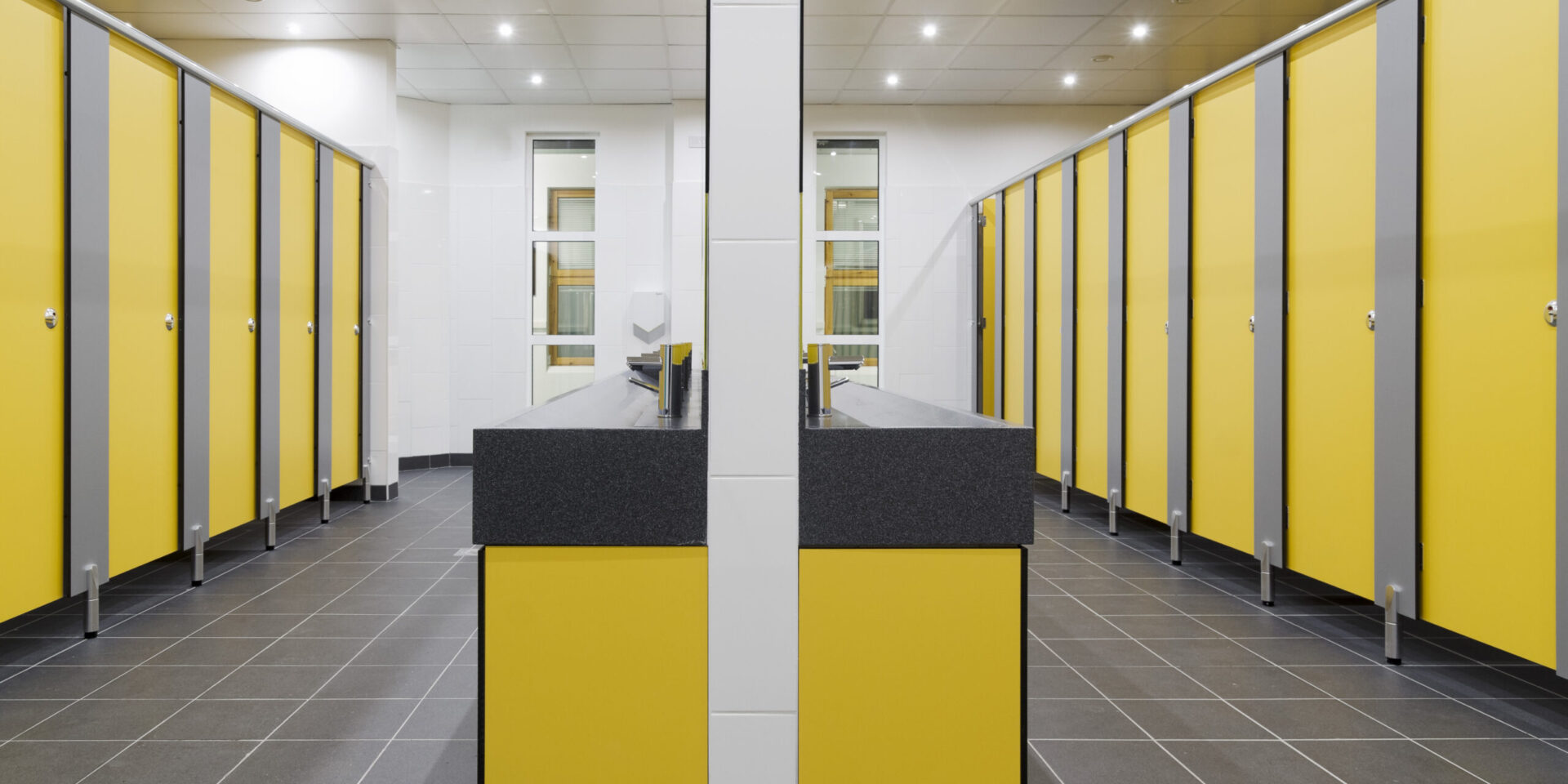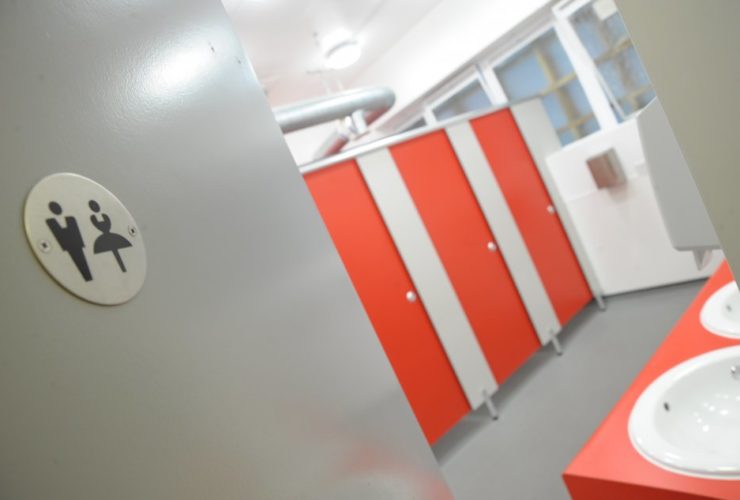The number of unisex toilets and washrooms throughout UK schools and education establishments is increasing. A precise figure isn’t known, but since the first one was installed at a Manchester school in 2000, gender-shared facilities have been found to have a number of benefits.
Interfix has designed and fitted unisex washrooms at seven UK schools and colleges. Our first installation took place in 2013 at Kemnal Technology College in Bromley. The introduction of unisex toilets, although an increasingly common sight in schools, remains a contentious issue for some, particularly parents. However, there is much to recommend their usage:
- An open plan, unisex washroom environment has been found to reduce instances of bullying and antisocial behaviour due to students being less-inclined to loiter in these areas.
- Unisex washrooms often feature floor-to-ceiling cubicles for added privacy, which makes for a more comfortable experience for the user.
- Urinals are removed when unisex toilets are installed. This reduces sanitisation and health issues, as well as problems with cleaning.
- Unisex toilets help eradicate gender discrimination according to sexual orientation, for example, transgender.
- Unisex toilets are an egalitarian experience – everyone has the same quality of facilities, regardless of gender.
- Teachers will not feel as anxious about attending to instances of student retrieval from unisex toilets as they would opposite sex facilities.
In the decades to come, it is likely unisex washroom and toilet facilities will become the norm throughout our school, leisure and business sectors. As the above information indicates, we have much to gain by their appearance in terms of cost, the environment and our children’s wellbeing – which surely outweighs the thoughts of those opposed to this progressive trend.



